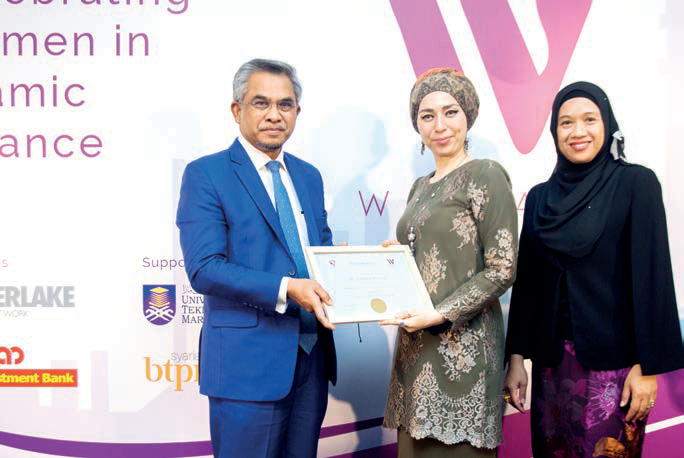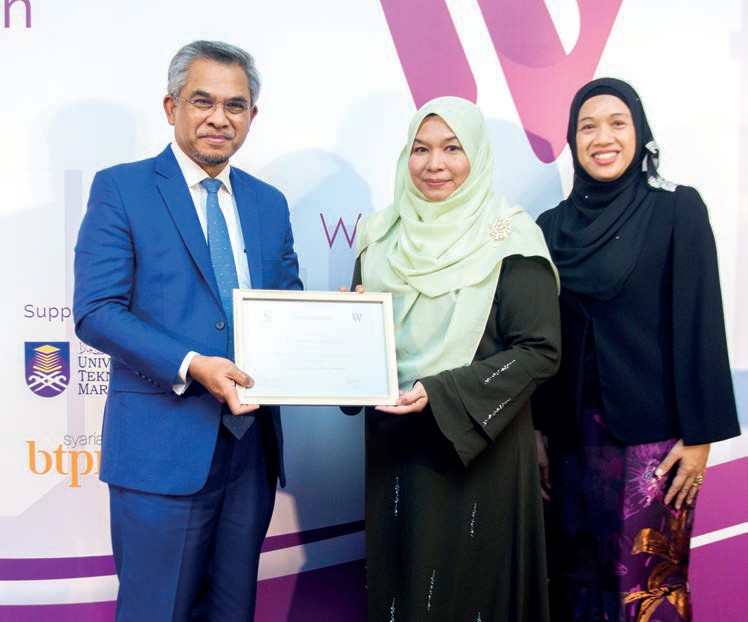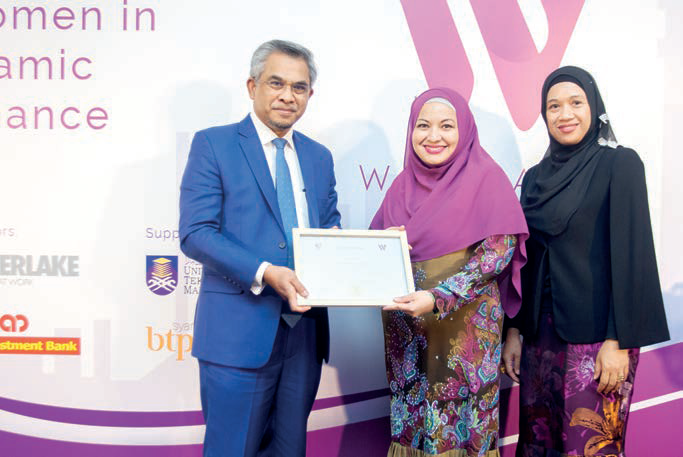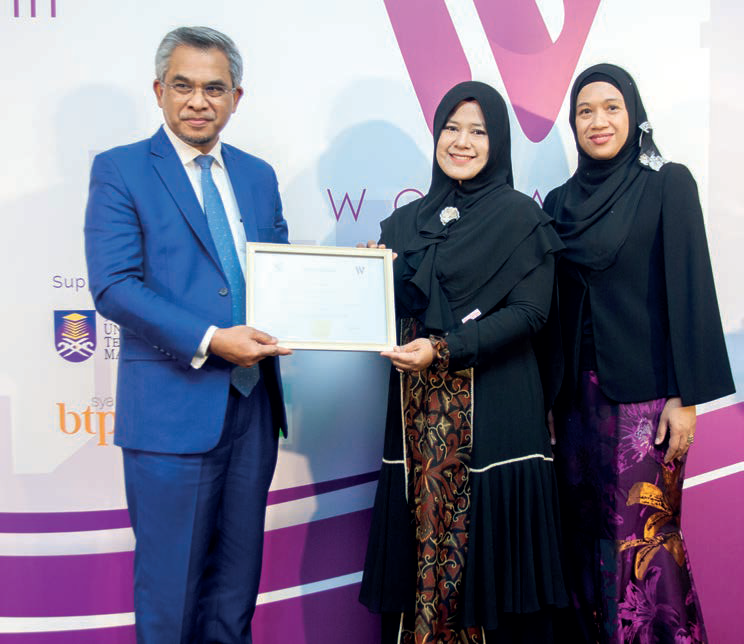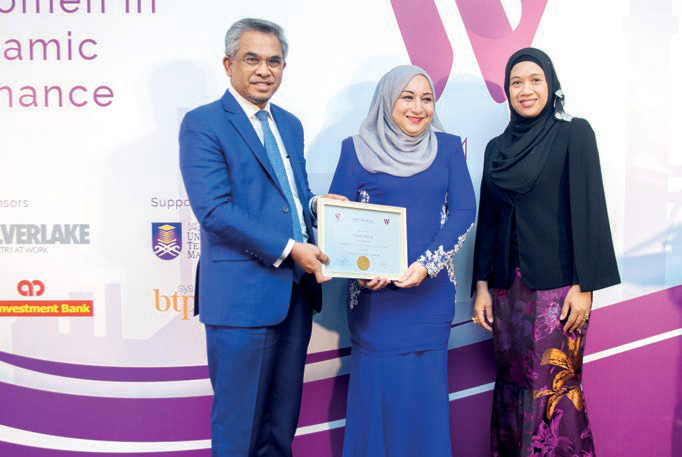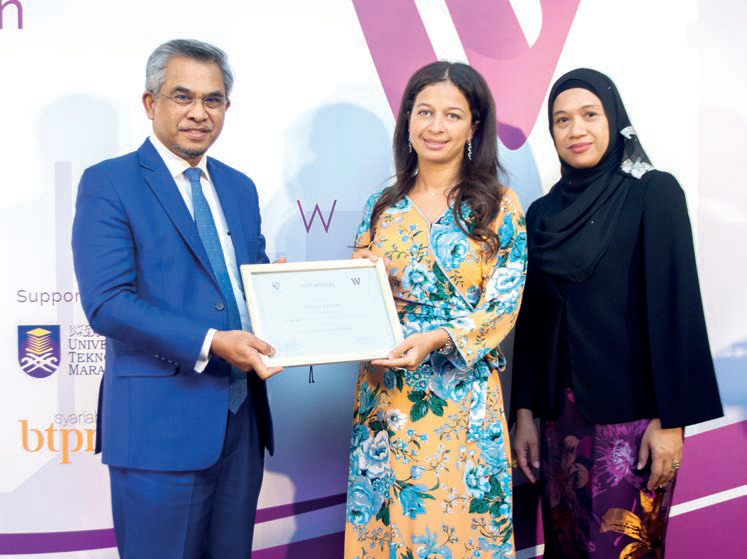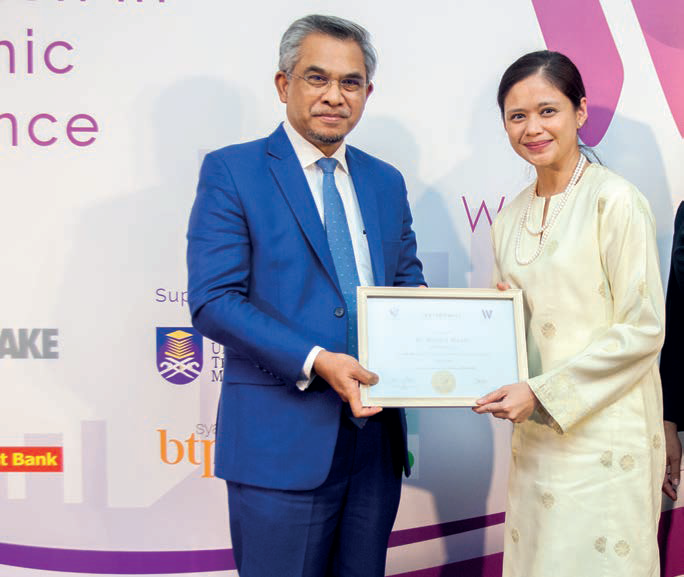Meet the women who are re-inventing the future, with expertise of yesterday, today’s tools and technology, and design of tomorrow.
A young girl wearing hijab comfortably seated on a chair at a slightly elevated stage, and playing guitar in a hall full of women (and some men) at Hilton Hotel Kuala Lumpur, was part of an ambiance rarely seen in the Muslim countries. The girl sang well. Actually, she impressed everyone, including a white lady who had travelled from London to participate in the event, as a distinguished guest. It was a real and live event, and not a scene from Secret Superstar, a 2017 Indian movie made on the subject of Muslim youth facing taboos on the career choice in music and related sub-sectors in the entertainment industry.
The ladies in the hall were dressed up in the nicest attires befitting the occasion. In most cases, one could see that their dresses had yet to become part of their wardrobes. The new dresses of all colours and designs added to the vibrancy of the occasion. Farida Tahir, CEO of Grassroots Microfinance Bank in Nigeria, wore the most beautiful dress with a modern African design and style.
Dr. Dian Masyita, an academician from Indonesia, was perhaps the most beautifully dressed up for the occasion. Noorsuriani Mohamed, Vice President & Head of Product & Market Development (Islamic Capital Market) at Bursa Malaysia, was not far off from her.
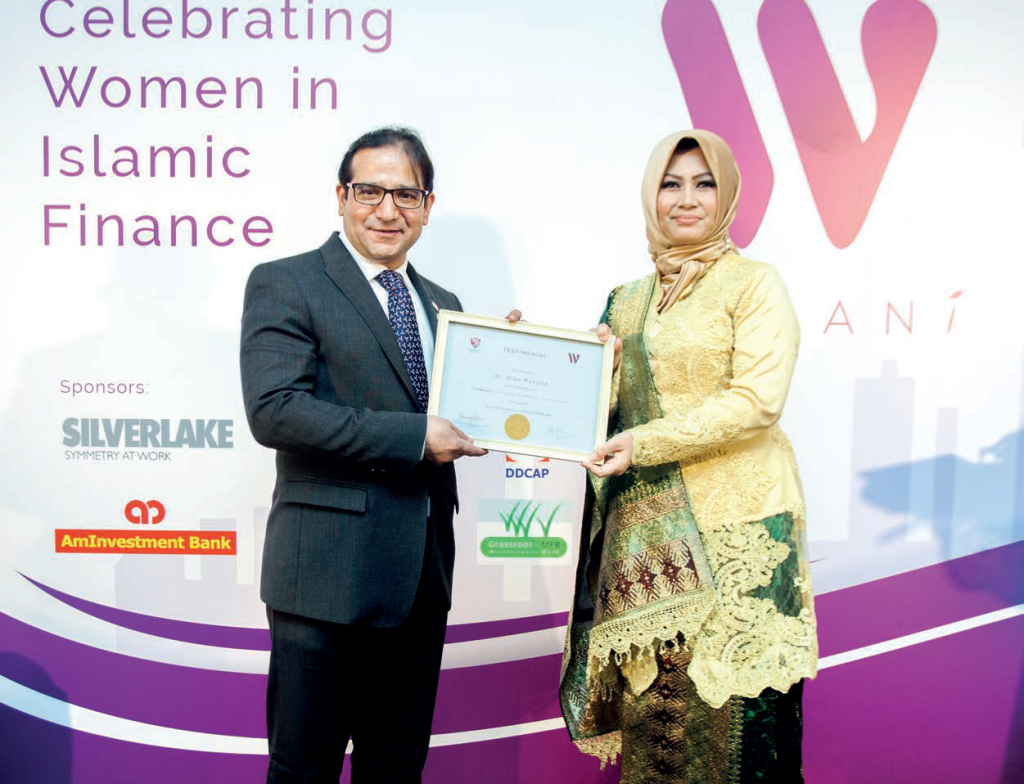
DR. DIAN MASYITA
Associate Professor at Padjadjaran
University, Bandung, Indonesia
Nationality: Indonesia
Dr. Dian Masyita obtained her PhD in Islamic Finance from Durham University, UK in 2012. Prior to that, she was a member of R&D Division in Indonesian Waqf Board (2007- 2010). She finished her Master of Engineering in 2001 from the School of Industrial Engineering and Management – Bandung Institute of Technology (ITB), Indonesia. In 2007, she got STUNED Award for postgraduate studies at the Maastricht School of Management (MSM), Netherlands. In August 2007, she was awarded “The Best Research Award”, a competitive research paper on the Golden Anniversary of Padjadjaran University. Currently, she is an Associate Professor and Head of Islamic Economics Study Program at the Faculty of Economics & Business, Universitas Padjadjaran, Bandung, Indonesia.
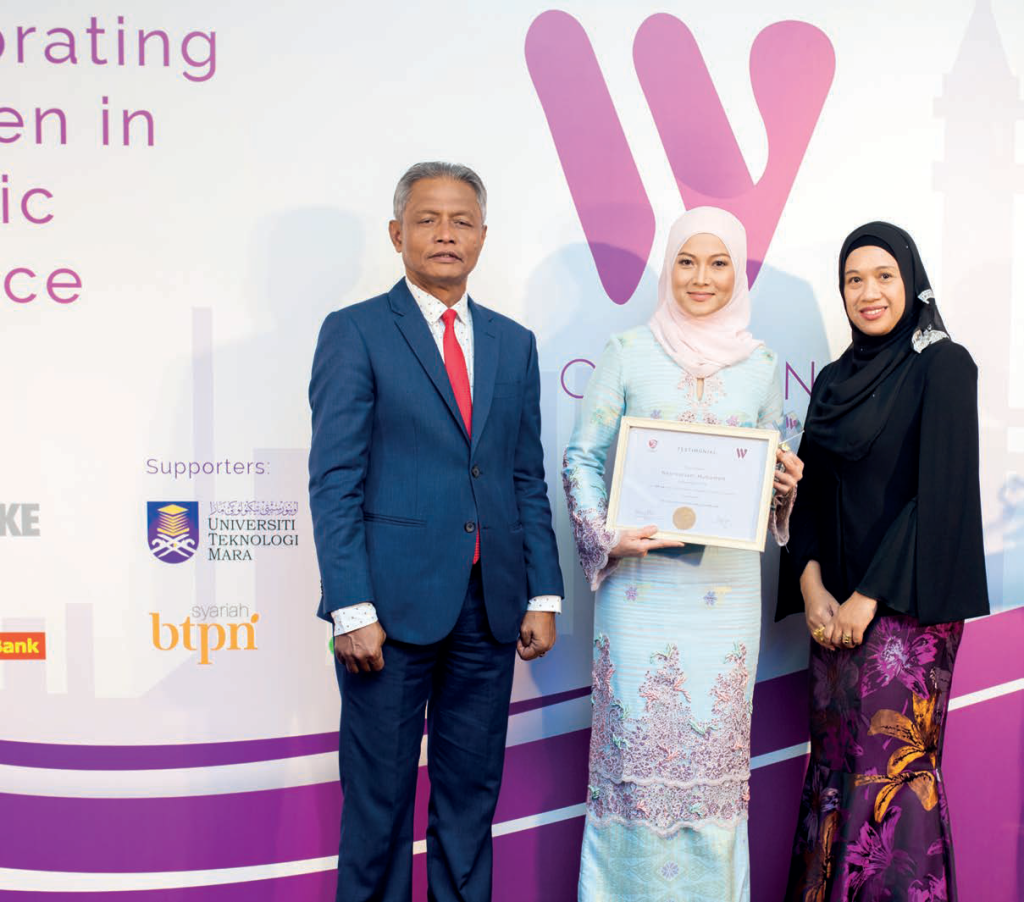
NOORSURIANI MUHAMED
Vice President Islamic Product and Market
Development, Bursa Malaysia Berhad, Malaysia
Nationality: Malaysia
Noorsuriani Muhamed is at present serving as Vice President: Islamic Product & Market Development at Bursa Malaysia, a role that puts her in the helm of all new developments in the Malaysian Islamic capital market. She is one of the potential leaders in IBF, who are expected to make an everlasting mark on the industry. Bursa Malaysia has been host to a number of leading personalities in IBF, including Raja Teh Maimunah (No.2), and the industry analysts view Noorsuriani Muhamed as one of IBF executives who hold a lot of potential and promise.
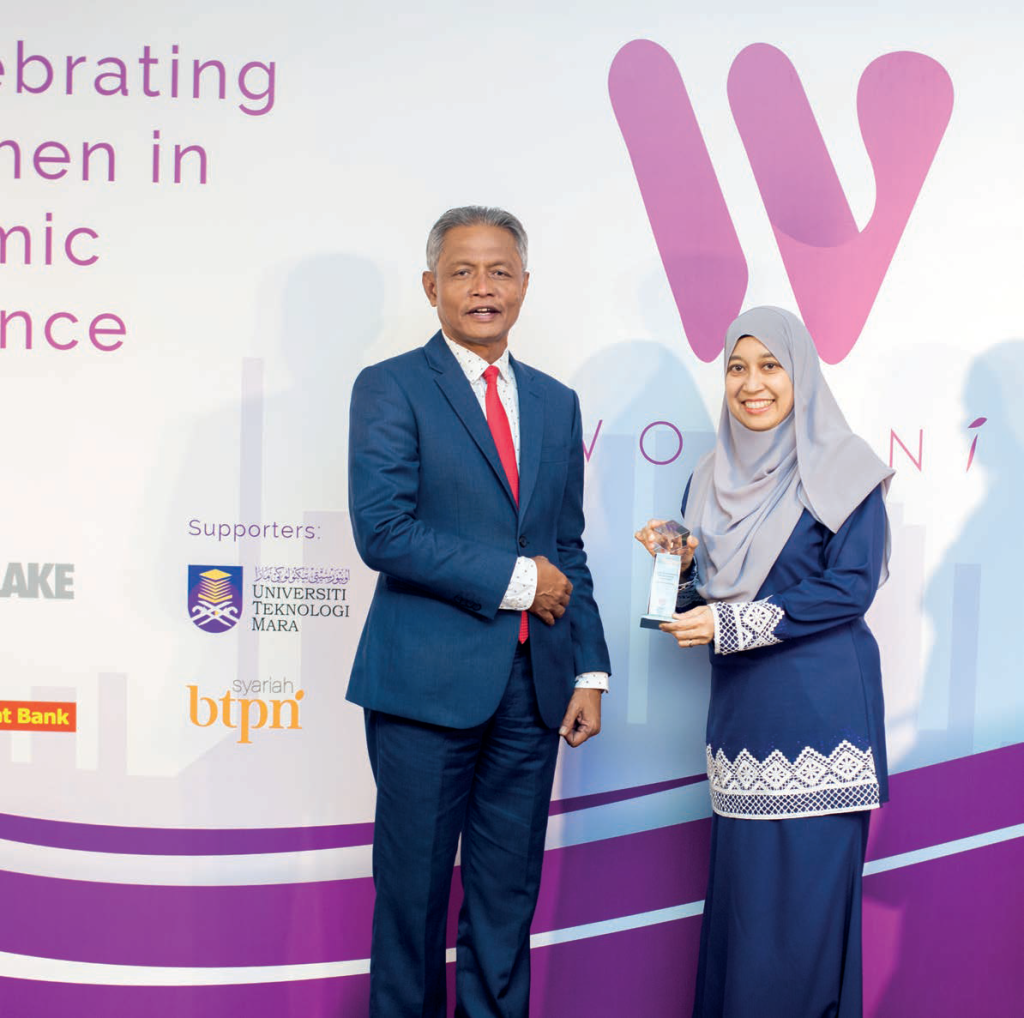
Deputy Finance Minister of Malaysia and Dr. Sofiza Azmi, Co-founder of WOMANi
DR. AZURA OTHMAN
CEO of Chartered Institute of Islamic Finance
Professionals (CIIF), Malaysia
Nationality: Malaysia
Dr. Azura Othman is currently serving as CEO of the Chartered Institute of Islamic Finance Professionals (CIIF), and in this role she is playing a leadership role in talent development for the Islamic financial services industry. She belongs to a new breed of Islamic finance professionals who graduated from INCEIF where she obtained Certified Islamic Finance Professional (CIFP) and PhD in Islamic finance. Since April 2015, she is also a Non Executive Director of Bank Muamalat Malaysia, and in this capacity also serves as Chairman of its Audit Committee.
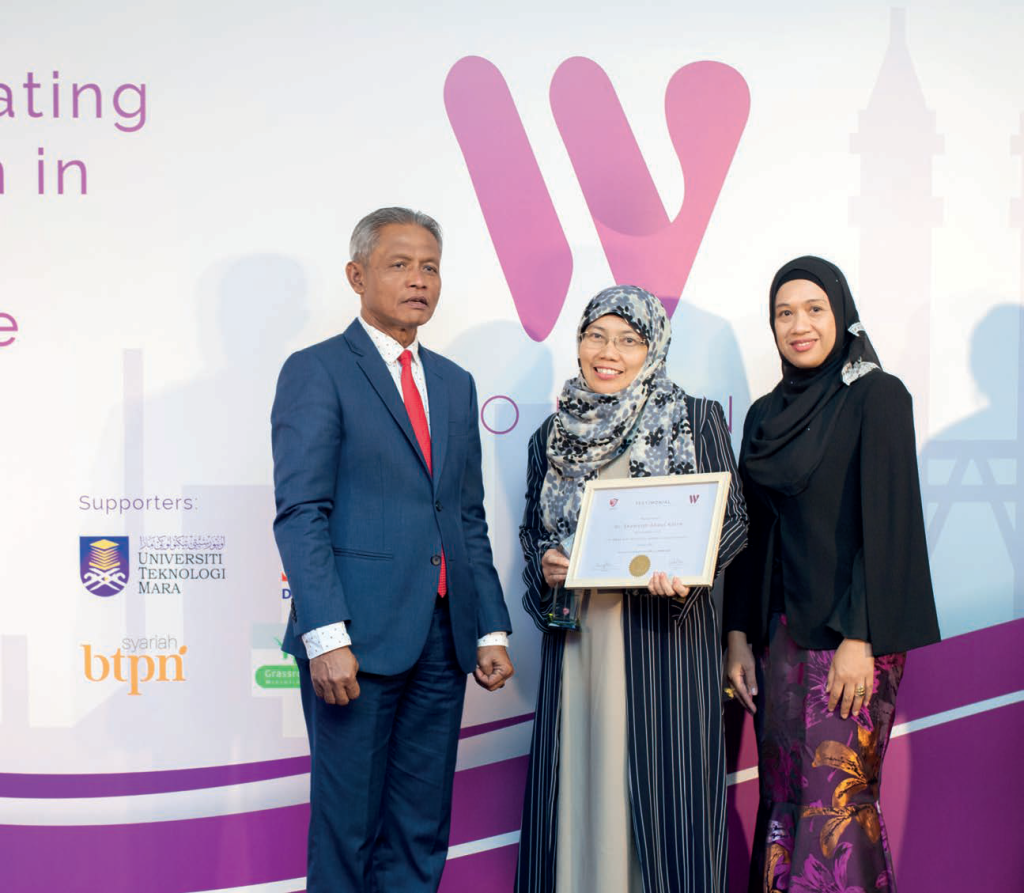
DR. SHAMSIAH
ABDUL KARIM
CEO of Albukhary Foundation, Malaysia
Nationality: Malaysia
Dr. Shamsiah Abdul Karim is currently serving as CEO of Albukhary Foundation, a personal charity of the Malaysian business tycoon, Syed Mokhtar Albukhary. She is involved in a number of Shari’a-compliant socially responsible projects primarily in the not-for-profit domain. A PhD from Durham University, her main area of interest is Islamic endowments and awqaf, in which she is now involved on the practical side. She has extensive experience of running CSR campaigns, something she mastered while serving as COO at Albukhary Foundation. Now, as CEO of the same organisation, she is in a better position to play a lead role in the not-for-profit sector. With more than 20 years of practical experience, she is poised to play an even bigger role in IBF, with a focus on charitable sector and philanthropy.
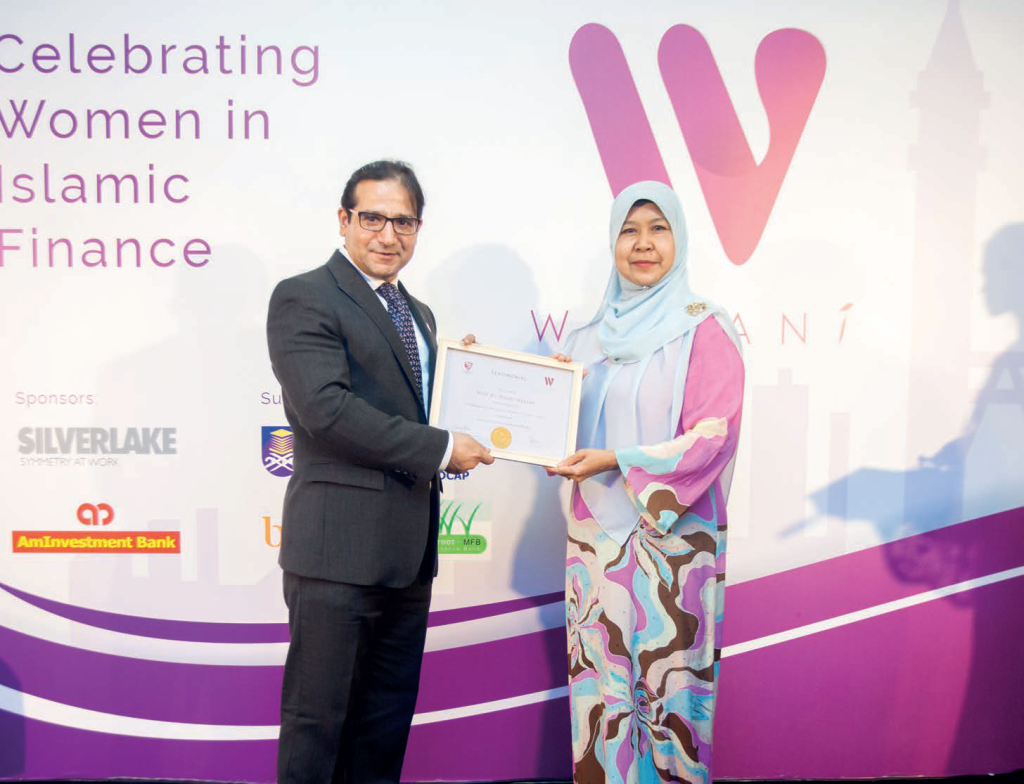
Professor Dr. Rusni Hassan (WOMANi: 22)
PROFESSOR DR. RUSNI HASSAN
Deputy Dean at IIUM Institute of Islamic
Banking & Finance, Malaysia
Nationality: Malaysia
Professor Dr. Rusni Hassan is another leading alumna of International Islamic University Malaysia (IIUM), who is playing a lead role in IBF. As a leading female Shari’a scholar who has served on the Shari’a Advisory Council of Bank Negara Malaysia (BNM) and is at present advising a number of Islamic banks and financial institutions on matters related with IBF, she is indeed considered as one of the champion female Islamic financial jurists in Malaysia. Like her contemporary, Professor Engku Rabia Ali (No. 4 on the List), she has inspired a new generation of female jurists and Islamic finance experts serving Islamic financial institutions and academia all over the world.
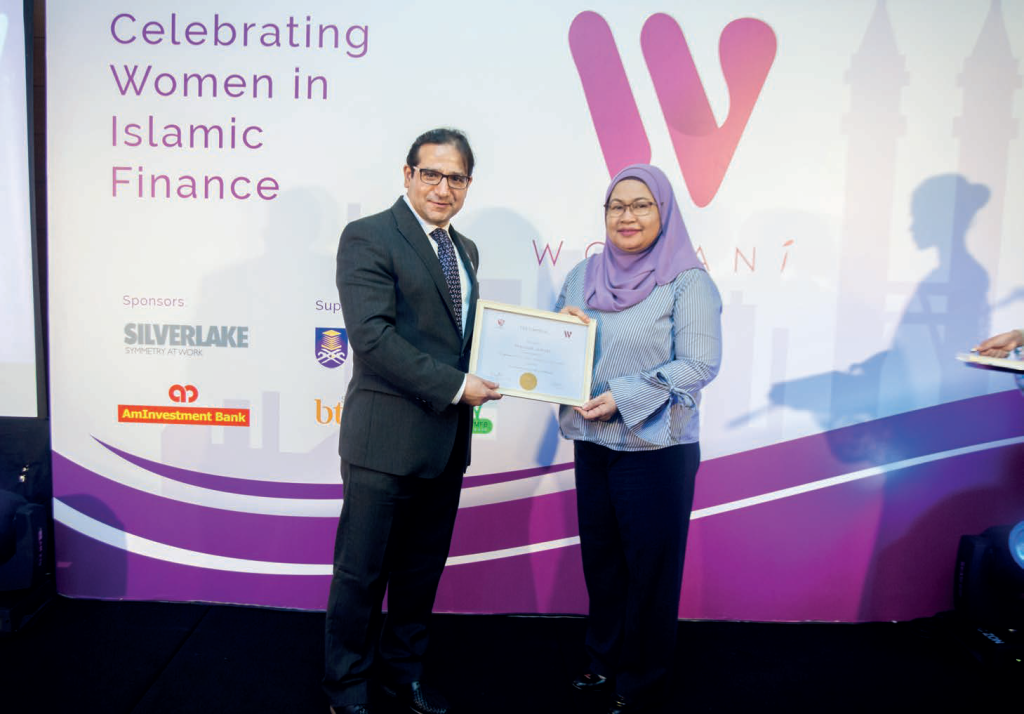
for long and currently is serving as CEO of RHB Islamic International Asset Management
(RHBIAM), Malaysia. She was ranked 23 on our global list of the 100 Most Influential Women
in Islamic Finance (WOMANi100).
SHARIZAD JUMAAT
CEO of RHB Islamic International Asset
Management (RHBIIAM), Malaysia
Nationality: Malaysia
Sharizad Jumaat is not new to Islamic asset management but she has brought a renewed dynamism to RHB’s Islamic asset management business since she joined RBHIIAM in 2013. She was tasked to spearhead RHB’s efforts to become one of the top 10 global players in Islamic asset management, a target she is well on track to achieve during her on-going tenure with the company. She commenced her career as an analyst with Permodalan Nasional Berhad (PNB), later to join another important Government Linked Company (GLC), namely Employment Provident Fund (EPF) as Head of Treasury and Fixed Income and later as Head of Equity Investments. With more than 15 years on the ‘buy’ side at EPF, she took a bold step to join the ‘sell’ side at Amanahraya REITs Berhad as CEO. In that role, she was involved in the entire process of property acquisitions and injection into the Amanahraya REITs listed on Bursa Malaysia. Impressed by her performance, the board decided to offer her a larger role as the Managing Director/CEO of Amanahraya Investment Management Sdn.Bhd., a company providing asset management services for both private mandates and unit trusts. During her tenure within the Amanahraya Group, she was exposed to all aspects of property investments and private equity businesses, involving joint ventures with partners in the Middle East.Today, Sharizad Jumaat is considered as one of the most experienced female Islamic asset managers in the country. She is certainly an inspiration for a large number of young female analysts and equity investment practitioners.
It was an evening showcasing the power of modest fashion. Malaysia has emerged as a hotspot of modest fashion in the world. Within Islamic finance, the likes of Shabana Hasan (WOMANi: 48) have been championing Islamic fashion as part of a global halal economy.It was a gathering of high-powered professional women working in the Islamic banking and finance (IBF) industry. Yet, it had flavour of a family do, full of nicely made up women flanked by their partners, children and mothers. Dr. Sofiza Azmi, the host of the evening, had her young daughter perform the important role of emceeing the event. The young girl who played guitar and sang was a friend of Dr. Azmi’s daughter. There were actually four girls from her school who volunteered to help at the event. Rati Rachmawati, President Director (CEO) of BTPN Syariah, an Islamic bank in Indonesia, was an invited guest. She travelled from Jakarta, with her mother. Dr. Irum Saba, another rising star in IBF, was there with her husband. They had flown in from Karachi. The event was enthusiastically over-subscribed, and some husbands happily obliged their wives to attend the main event while they spent time with their children in the foyer. One lady had flown from Dubai with an infant daughter, as she didn’t want to miss the event. By the way, it was evening of April 4, 2018. The evening witnessed the launch of WOMANi Awards. The Chief Guest on the occasion was Dato’ Othman Aziz, Deputy Finance Minister of Malaysia. Although it was an event to celebrate success of leading women in IBF, the hall had about one-third filled with men. Most of them accompanied an invited woman.
What is WOMANi?
“A WOMANi is a modern female, professional in career, powered by leadership and authority, with ambition bounded by family concerns, confident in manners, aggressive yet sensitive to social norms, and a proficient communicator,” said Professor Humayon Dar, Co-founder of WOMANi Awards.
WOMANi is a world-wide recognition and felicitation programme. Designed by Cambridge IFA, it promotes gender
equity in the corporate sector, government agencies and departments, and in social sector & philanthropy. WOMANi’s initial focus is on IBF. It attempts to compile a list of 1,000 leading women in IBF in the next five years. Its ultimate goal is to contribute to developing at least one million women into leadership roles in government, business and social sector & philanthropy in the world.
It must be clarified that WOMANi Awards are not exclusively for Muslim women. In fact, Stella Cox (Managing Director of DDCAP UK), a non-Muslim, was honoured as the Most Influential Woman in Islamic Finance for 2018. This was in recognition of her pioneering work in the field of Islamic liquidity management, which has helped a large range of activities – from retail banking to capital markets – in IBF.
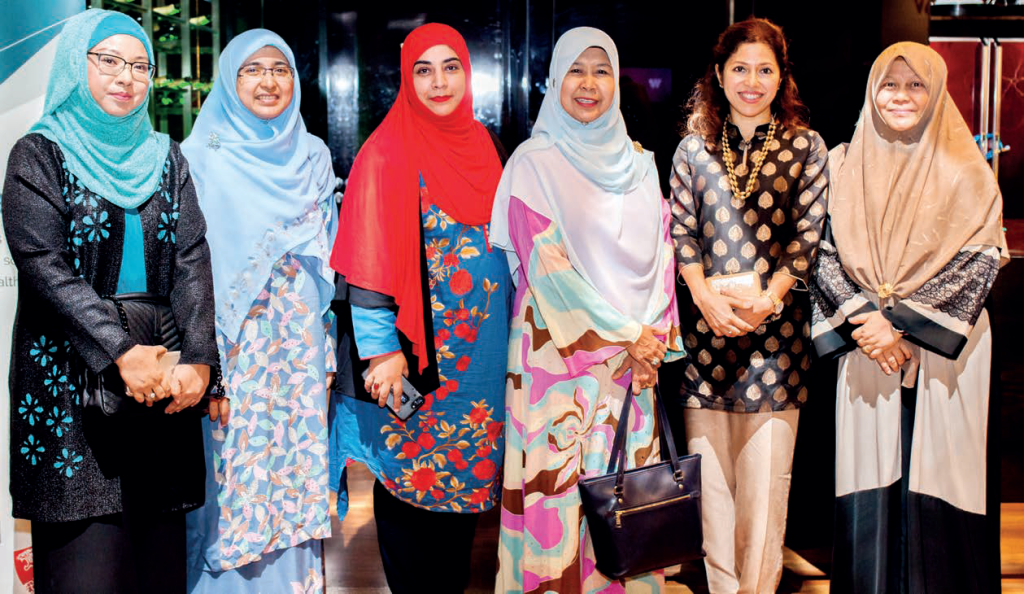
“A WOMANi is a modern female, professional in career, powered by leadership and authority, with ambition bounded by family concerns, confident in manners, aggressive yet sensitive to social norms, and a proficient communicator.”
“IBF is no more merely a profession but rather a lifestyle,” said Dr. Sofiza Azmi, Co-founder of WOMANi. The woman leaders in IBF are now jet-setters. Gone are the days when women had to forego a lot of professional opportunities, owing to family pressure or social taboos. “For me it is almost every month when I meet my fellow professional ladies in IBF in different parts of the world,” said Dr. Aishath Muneeza, a Maldivian national working at INCEIF as an associate professor in Islamic finance.
Looking at the list, anyone familiar with the ladies will immediately understand the highlighted definition of WOMANi. All these women have to share very interesting personal stories of hard work, disappointments, struggle and of course success. Farah Mounir, who received WOMANi Special Award 2018, at the inaugural WOMANi Awards, was a source of information for everyone in attendance. She had courageously and successfully fought back cancer to return to her Islamic banking job at a bank in Abu Dhabi.
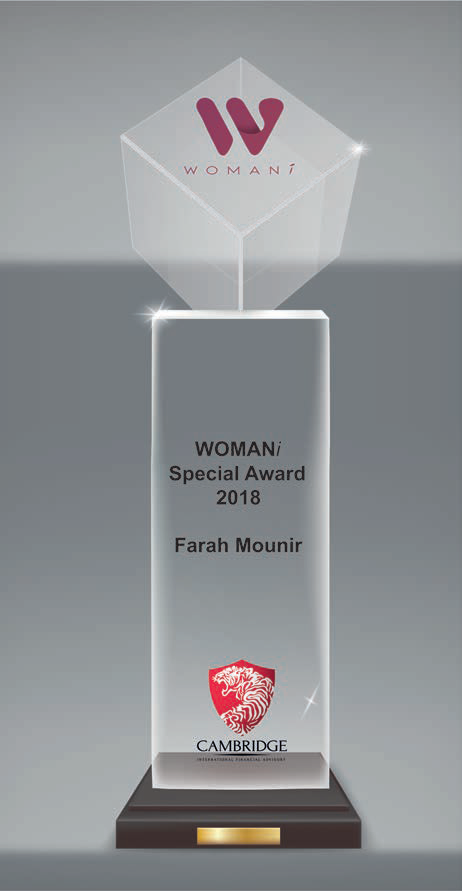
Farah Mounir of ADCB Islamic Banking
Abu Dhabi received WOMANi Special Award 2018
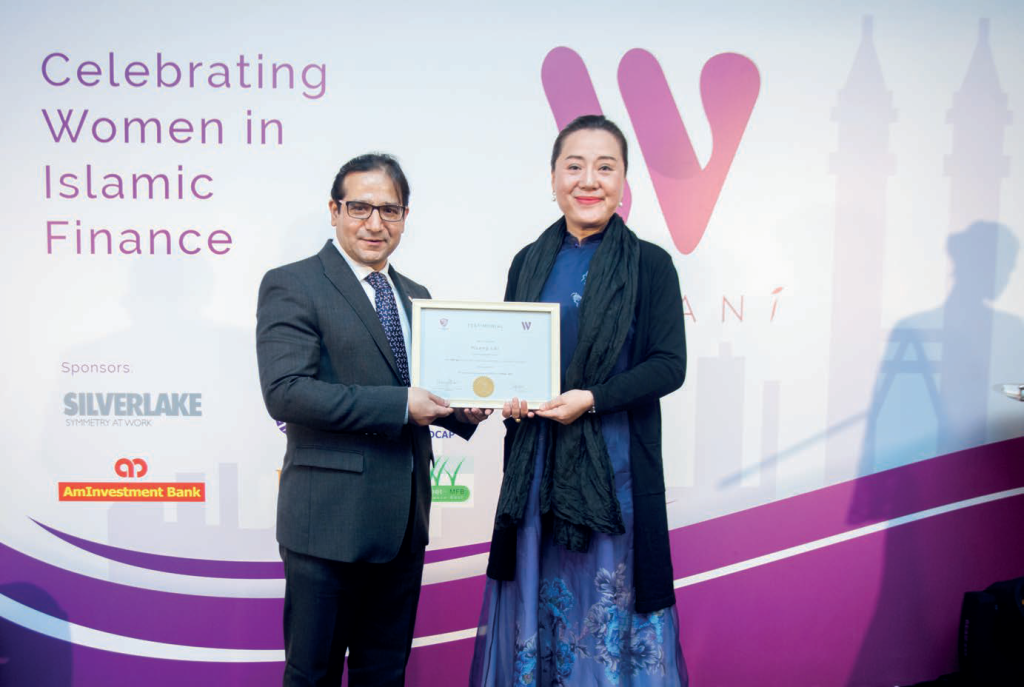
was Huang Lei, Founder & CEO of China Islamic Finance Club. She travelled all the way
from China, and was the only lady representing Islamic finance in her country.
HUANG LEI
Founder & CEO, China Islamic
Finance Club
Nationality: China
Ms Huang Lei is the Founder and CEO of China Islamic Finance Club. She is also the Chief Executive Officer of Zhishang Inter-culture Communication (Cross Time International Group), China. She has been instrumental in creating greater awareness about Islamic banking and finance in China amongst the government officials and business leaders in the country. Under her leadership, the first China-UAE Conference on Islamic Banking and Finance was held in Beijing in 2016. This event was organised by the Dubai Center for Islamic Banking and Finance (DCIBF) at Hamdan Bin Mohammed Smart University (HBMSU) and Dubai Islamic Economy Development Centre (DIEDC), in cooperation with the China Islamic Finance Club, and ZhiShang Inter-culture Communication. Since then, she has co-organised several roundtables and conferences in China in her endeavour to further promote Islamic banking and finance in the country.
IBF is no more merely a profession but rather a lifestyle.” Dr. Sofiza Azmi.
The most influential Woman in Islamic Finance:
Stella Cox, CBE
Stella Cox CBE, Managing Director of DDCAP Group, tops the Womani List again this year as the most powerful women in Islamic finance. She holds the distinction of being Number One lady on the WOMANi List for two consecutive years(2017 & 2018), climbing up from the second position in 2016. Her contributions to the development of IBF world-wide are numerous, both professionally and on the advocacy front. Having worked within the Islamic financial marketplace for more than three decades, shehas played a pivotal role in Islamic liquidity management and championing IBF within the industry and beyond. Out of the three parameters, Stella scored the highest in professional leadership and international recognition; and obtained the second highest score for advocacy. In 2016, Stella was appointed a Commander of the Order of the British Empire (CBE) by Her Majesty Queen Elizabeth II of the Great Britain on the occasion of Her Majesty’s birthday in recognition of her role as a champion for the development of Islamic finance in the UK and for her services to the UK economy.
Having realm the leadership of DDCAP Group as the Managing Director since 1998, DDCAP has invested, for its own account, in a number of Islamic financial services initiatives. This includes pioneering Islamic finance intermediation services, serving clients and counterparties in the GCC countries, South East and Central Asia, Europe and beyond. Today, DDCAP is a leading provider of Shari’a-compliant intermediation services and related technology solutions, including the award winning ETHOS Asset Facilitation Platform™. Her greatest contribution to IBF is the pivotal role she played in pioneering Islamic liquidity management solutions. All commodity facilitation platforms (e.g., Suq Al Sila’ of Bursa Malaysia, and commodity murabaha platform developed by Dubai Multi Commodities Centre (DMCC), etc.) trace their roots to Dawnay Day, later renamed as DDCAP, a company Stella Cox continues to spearhead. Prior to founding DDCAP, Stella Cox was a Director of Dresdner Kleinwort Benson, where she was responsible for the Middle Eastern and Islamic financial marketplaces. Whilst with the Bank, she was involved in structuring The Islamic Fund, the first Shari’a-compliant global equity product, launched in 1986. She was also a Director of the Al Meezan Commodity Fund plc, a joint venture initiative with a GCC Islamic bank that invested in non-ferrous metals traded on the London Metal Exchange. From 2007 to 2009, she served as an Independent Non-Executive Director of Gatehouse Bank, a UK Islamic investment bank.
Stella Cox has been consulted on Islamic financial market practice for several regulatory authorities, home and abroad. She was one of a small group of industry experts appointedto the first Islamic Finance Task Force convened by the UK government. The ministerial led Task Force was established to refocus on Islamic finance and the UK proposition. With support from the Task Force, the first UK Sovereign Sukuk was issued in June 2014. In 2014, she was appointed Chair of the Islamic Finance Market Advisory Group formed by The City UK, the financial services professional body that champions UK based financial and related professional services. Under her leadership, the Islamic Finance Market Advisory Group has worked with the British government to support and promote key announcements, including the Bank of England’s feasibility study on establishing a Shari’a-compliant liquidity management facility, and the aspirations for the central bank to be the first in the Western markets to make such an offering. Since 2015, she has been a member of the Board of Trustees ofthe RFI Foundation and, since 2016, an Advisory Board member for the Ethical Finance Innovation Challenge Awards (“EFICA”). Stella Cox is also a Fellow of the Institute of Islamic Banking and Insurance in the United Kingdom and has served on its Board of Governors within the Islamic Banking Group. She also served as a member of HM Treasury Islamic Finance Experts Group, where she was part of the Market Standardisation sub-group. At the international front, She was also a member of the Working Group established by the Central Bank of Bahrain (formerly the Bahrain Monetary Authority) with the purpose of developing procedures and documentation for Islamic commodity trading and she assisted the DIFC Islamic Advisory Committee with its work on selected strategic development initiatives. She serves as a member of the Islamic Financial Services Board Money Market Task Force on Markets and Instruments for Shari’a Compliant Liquidity Management and represents DDCAP on the Market and Product Development Committee (MPDC) of the International Islamic Financial Market. Stella Cox continues to support education initiatives in IBF. She is a member of the University of East London’s Islamic Finance and Banking Advisory Board and a visiting lecturer at Durham University’s Islamic Finance Summer School Programme. Her strong support towards and involvement in Cambridge Islamic Finance Leadership Programme demonstrates her commitment to develop the next generation of leaders in IBF.
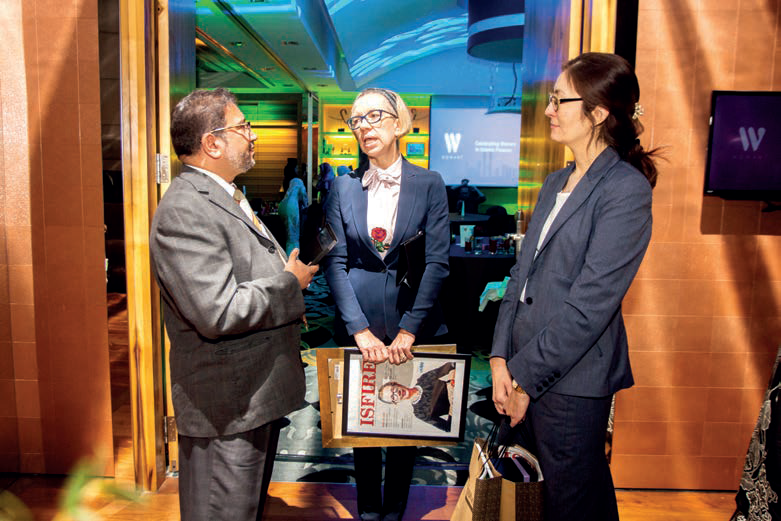
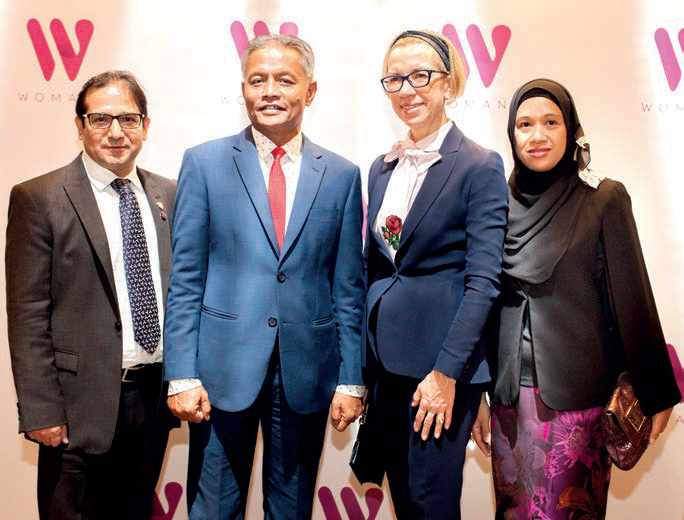

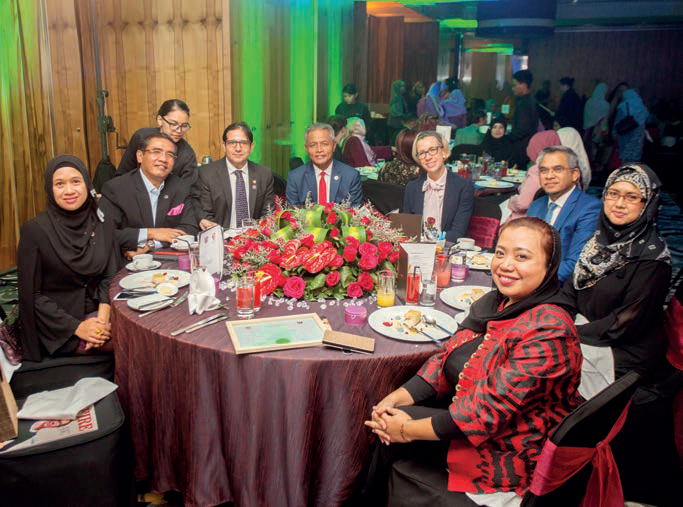

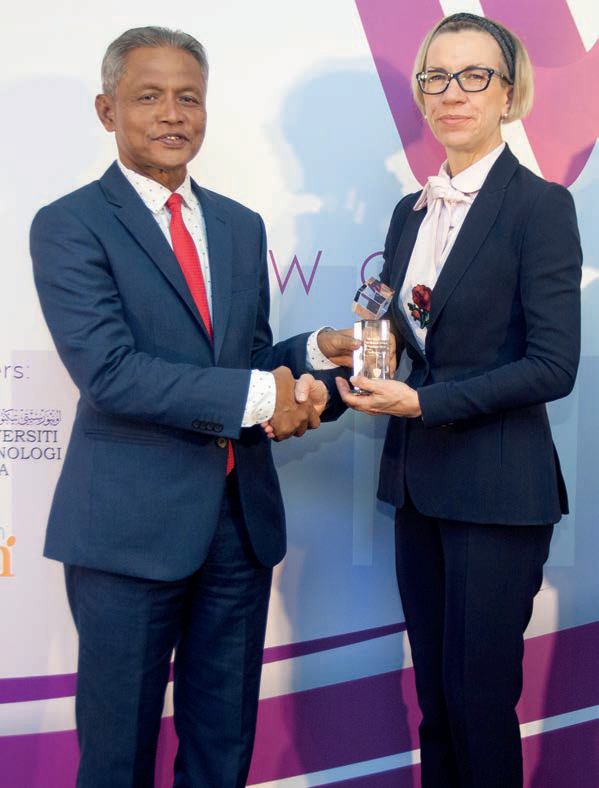
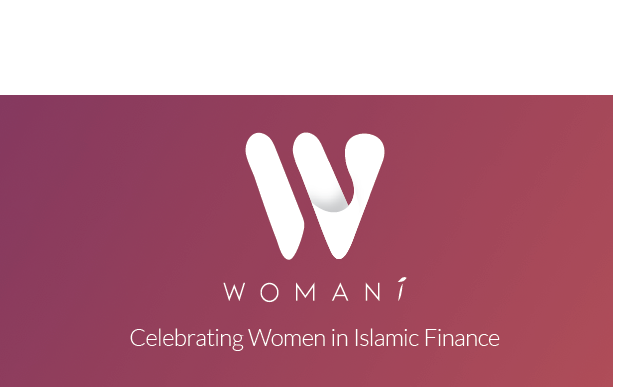
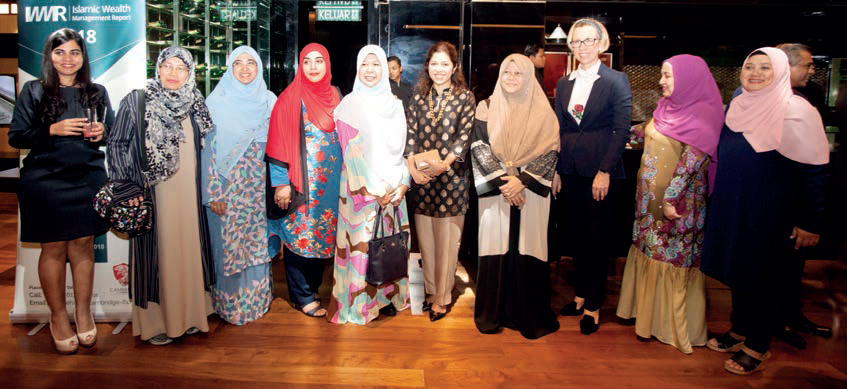
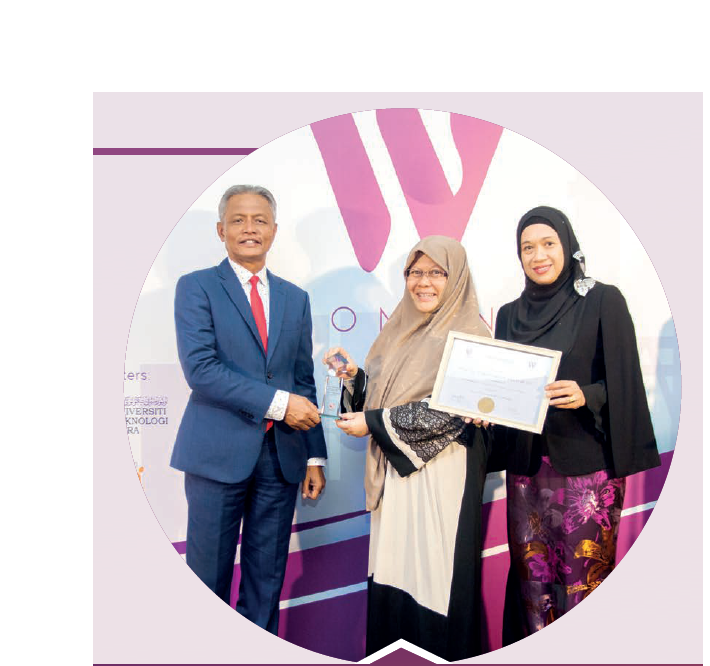
ENGKU RABIAH ADAWIAH ENGKU ALI
Professor at International Islamic
University Malaysia, Malaysia
Nationality: Malaysia
Professor Dr. Engku Rabiah Adawiah Engku Ali, a professor of law at International Islamic University Malaysia, is perhaps the first globally-recognised female Shari’a scholar in the contemporary Islamic financial services industry. As an academician who is actively involved in Shari’a advisory for Islamic financial institutions, she has inspired a new generation of female Shari’a scholars in Malaysia and globally. Her success story is significant in many respects. She earnt fame when she was appointed as the first female member of the Shari’a Advisory Council of Bank Negara Malaysia (BNM), the central bank of Malaysia. She emerged as a heavyweight Shari’a scholar when she combined memberships of Shari’a Advisory Councils of all the three regulators in Malaysia, namely, BNM, Securities Commission Malaysia, and Labuan Financial Services Authority. Engku Rabiah’s story also has a national significance. Her progression to success and fame is an outcome of Malaysian government’s planning to empower women in different fields and roles.
Engku Rabiah had a ripple effect on a global level by inspiring women to choose Shari’a and law as a viable profession. This is indeed an impressive contribution to revive tradition of female jurists, which otherwise had a bright history but remained subdued in the recent past. Although there are now a number of other competing female jurists emerging, Engku Rabia continues to play a central role in the contemporary Islamic financial jurisprudence.
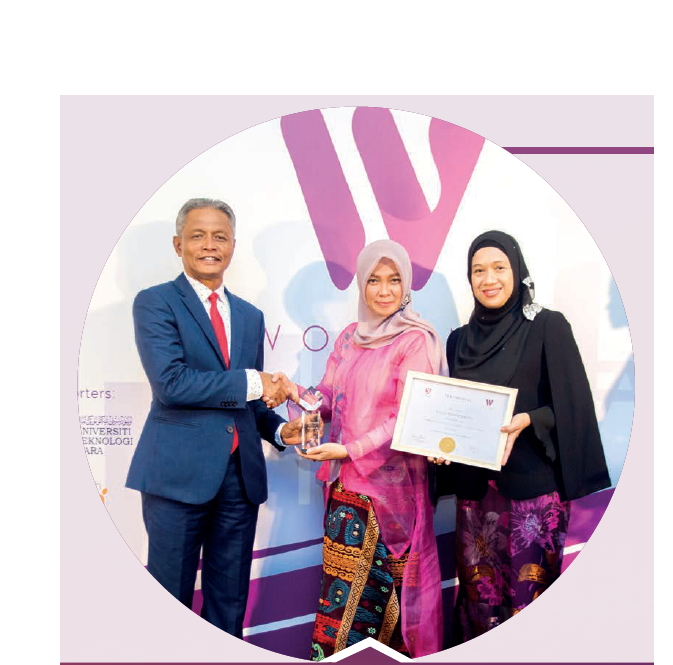
RATIH RACHMAWATY
President Director of BTPN Syariah,
Indonesia
Nationality: Indonesia
Ratih Rachmawaty is presently the only female CEO of an Islamic bank – BTPN Syariah – in Indonesia. Under her dynamic leadership, BTPN Syariah has emerged as an award-winning Islamic bank, recognised for its focus on microfinance and women empowerment through financial inclusion, and thus supporting productive poor families to achieve better lives. The financial services provided to serve the productive poor customers are aligned with the Islamic principle of Mu’amalat, designed for the customers to nurture key behaviours of Courage, Discipline, Hardworking, and Solidarity. In Indonesia, a country of more than 13,000 islands, offering Islamic microfinance is a daunting task. BTPN Syariah has found this niche under dynamic leadership of Ratih Rachmawaty. With more than 2.6 million microfinance customers, and about US$250 million outstanding financing, BTPN Syariah is a major player in Islamic microfinance. With 23 years of experience under her belt in the business of banking at large and microfinancing in specific, she has spent the last 14 years in building mass market business model. Ratih is founder of financial services for the productive poor women, introduced through the Shari’a business unit within BTPN Bank in 2010, where she served as the head of Sharia’s Business Unit. When the Shari’a Business Unit was spun off and transformed as BTPN Syariah Bank in July 2014, she continued to serve as the Deputy President Director of BTPN Syariah for three years before being appointed as the President Director in March 2017. To date, over 2.9 million customers in 23 provinces are empowered by more than 12,000 BTPN Syariah’s employees in which 94% are female employees.

Ratih Rachmawaty brings her passion for community empowerment to her role as a banker. During her stint at Bank Danamon (2003 to 2008), she was a key member of Danamon Simpan Pinjam; a division of Danamon’s micro banking and was the first private bank to focus exclusively on the micro and small enterprise market. With a personal mission to empower the mass market in Indonesia, Ratih Rachmawaty went on to establish a new business unit focusing on micro banking known as Mitra Usaha Rakyat after joining BTPN Bank in 2008.
She has conducted various comparative studies on best practice in micro-banking in countries such as India, Mexico and Peru. She continuously feeds her passion for learning especially in the areas of financial inclusion and poverty eradication through her various engagements with institutions such as Grameen Foundation, International Finance Corporation (IFC) and United Nations Capital Development Fund (UNCDF). She regularly attends conferences and leadership programme for professional development as well as to enhance her knowledge in micro banking knowledge and leadership, such as the World Micro Credit Summit and Harvard Business School, Boston, USA. Ratih Rachmawaty is known for making statements that become tag-lines. “The biggest risk is the risk of divorce,” she said in an interview in 2013, in response to a question on microfinance. BTPN Syariah offers microfinance to women with homes, and the incidence of divorce adds to the risk of default. Similarly, she made a statement, “[Clients’] faces are their collaterals,” meaning that in group-based lending individual borrowers must attend weekly/monthly meetings in person to reduce the risk of default.
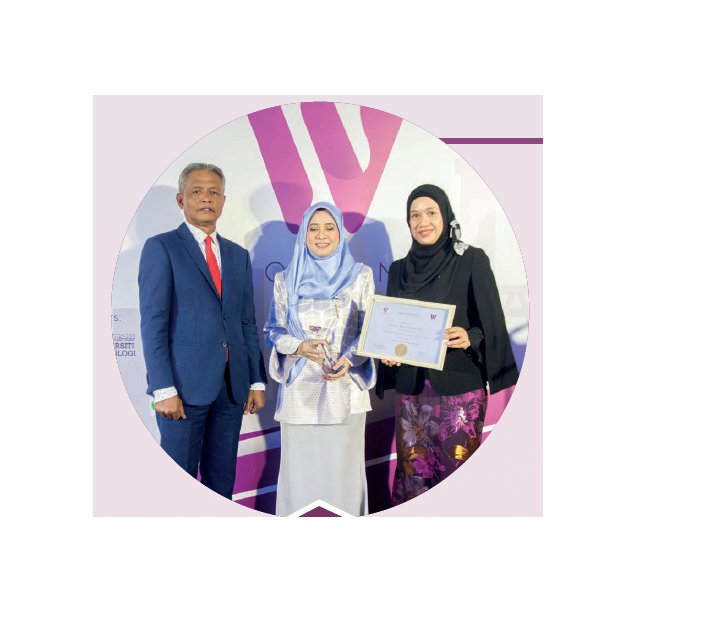
MAYA MARISSA MALEK
Managing Director of Amanie
Advisors, UAE
Nationality: Malaysia
Maya Marissa Malek is serving as Executive Director for Global Shari’a Advisory and Compliance at Amanie Group of Companies, in addition to being Managing Director of Amanie Advisors LLC, Dubai. Coming from a legal background with more than 20 years of experience mainly in corporate, legal and Islamic financial matters, she is one of the very few women who are leading Shari’a advisory management business. In her current role, she has managed a number of projects in Shari’a governance, structuring and conversion of conventional banks into Islamic. In particular, Maya Marissa has been instrumental in landmark Islamic financial instruments and projects such as development of Islamic banking framework for the Central Bank of Afghanistan, and in developing the first ever Shari’a standard on gold together with the World Gold Council and AAOIFI. Her area of specialisation includes Islamic finance framework, Shari’a governance, structuring, enhancement and conversion exercises, establishment of Islamic financial entities as well as development of Islamic finance policies and standards. She is also a prolific speaker and speaks at various industry conferences and forums around the world, creating awareness on Islamic finance.
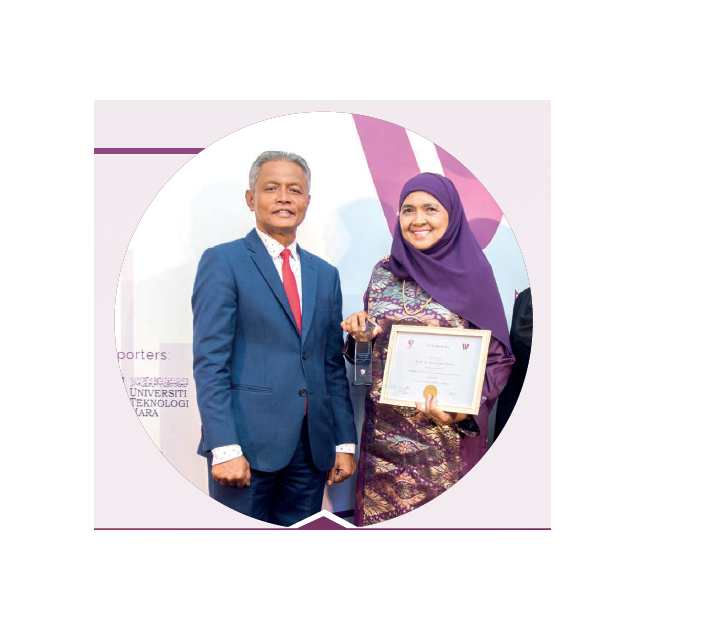
PROFESSOR DR. NORMAH OMAR
PROFESSOR DR. NORMAH OMAR
Director of Accounting Research
Institute at UiTM, Malaysia
Nationality: Malaysia
Professor Dr Normah Omar, who has more than 25 years of research experience, is a professional accountant by training. She is the founding and current director of ARI. She has been instrumental in both the establishment of ARI in 2006 and in getting the Higher Institution Centre of Excellence (HICoE) status from the Ministry of Higher Education in 2009. Although not an Islamic scholar herself, Professor Normah believes that knowledge corpus in accounting and financial criminology is necessary and can add significant values to the development of the Islamic finance sector. Together with her research team, Prof Normah has completed various research projects related to governance, risk management, integrity, fraud risk factors and anti-money laundering measures in the financial service industry and including the Islamic finance sector. Under her helm, ARI has won many international awards. For four consecutive years (2014 to 2017) ARI has been recognized for pioneering research and in developing academic programmes in Islamic Financial Criminology by the prestigious Global Islamic Finance Awards (GIFA). ARI was also named as “Research Body of the Year in Islamic Financial Criminology” by ACQ Global Awards in 2015 and 2016. In 2017, ARI clinched the Excellence in Higher Education Award at the Global Good Governance Awards (3G), an event initiated by Cambridge IFA in the United Kingdom. At the regional level, ARI won the ASEAN Risk Awards for 2016 and 2017 from the Global Enterprise Risk Management Academy (ERMA).
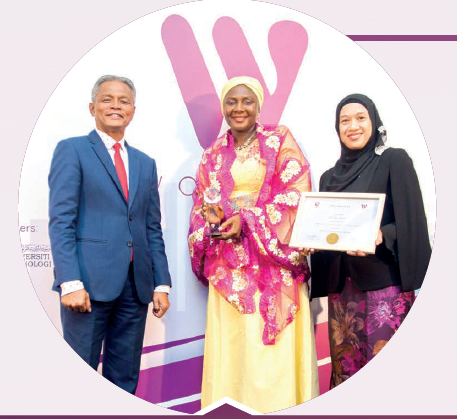
FARIDA TAHIR
CEO of Grassroot Microfinance Bank, Nigeria
Nationality: Nigeria
Farida Tahir is our first entrant from Nigeria to the prestigious WOMANi50 List for 2018. As a microfinance practitioner, the noble cause of women empowerment is very close to her heart. Out of her over 15 years of banking experiences, she has mostly worked for conventional banks like Africa International Bank (AIB), and Bank PHB before joining Grassroot Microfinance Bank as the GM business development & strategy. In her various roles in the banking industry, she has been involved not only in product development but also in business development and marketing.
Her appointment in 2012 as MD/CEO of Grassroot Microfinance Bank spurred her interest in Islamic finance. When she assumed this position, she took upon herself to introduce and grow Islamic microfinance business within her bank. This also triggered her to acquire a postgraduate degree in Islamic banking and finance from the International Institute of Islamic Banking & Finance in Nigeria in 2014..
As a onetime First Lady of a local government community, Farida Tahir has been involved in many community development programmes that have impacted the lives of her people. In 2007, she founded MIA (mata iyayen al’umma), a cooperative society for women, offering interest-free financial and non-financial services that have aided the empowerment of over 2,000 members across different rural communities in Kano, Nigeria. In the same year she founded MIA foundation, a body that focuses on creating opportunities and financial inclusion of women and other marginalized groups in the society.
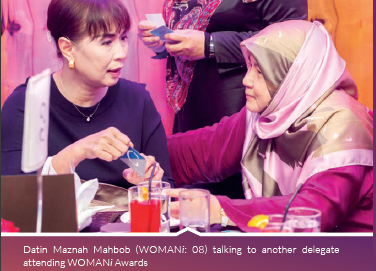
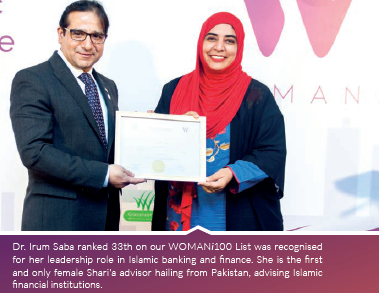
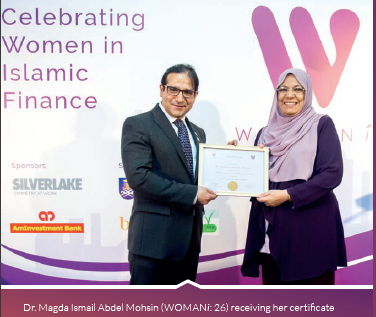
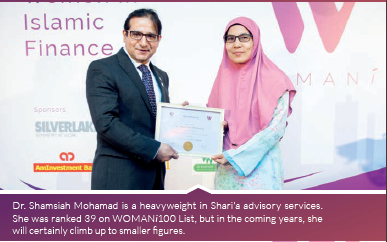
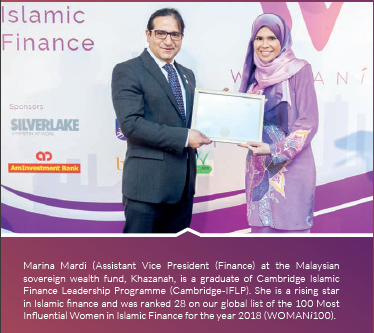
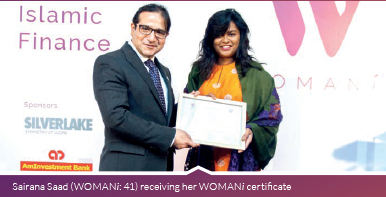

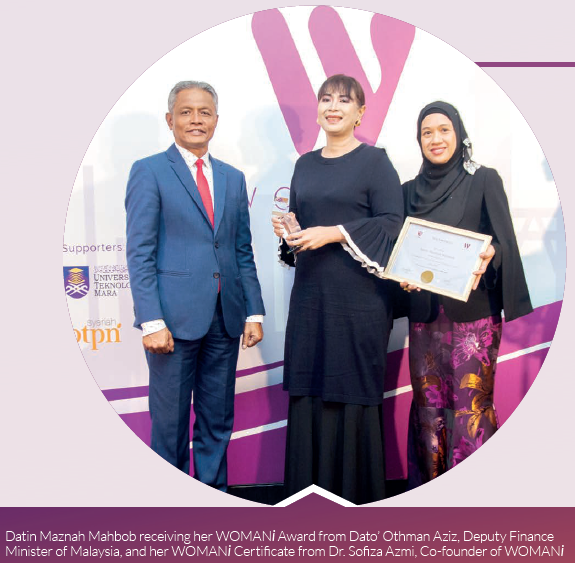
DATIN MAZNAH MAHBOB
Partner Strategic Swiss Partners, Malaysia
Nationality: Malaysia
Datin Maznah Mahbob, previously Chief Officer of AmInvest, is no stranger in the male-dominated funds management industry. With more than 30 years of experience, she has carved a name as one of the leading personalities in this niche industry. Under her dynamic and capable leadership, AmInvest has been on the forefront within the Shari’a-compliant space evidenced by its string of international accolades, including the prestigious Global Islamic Finance Awards. In 2016, the institution picked up the award for the Most Innovative Fund Manager at the Global Islamic Finance Awards 2016 held in Jakarta, Indonesia. Datin Maznah sits on several Boards of AMMB private companies as well as Chairman Commissioner of AmInvestasi Indonesia. She is also on the Board of Trustees of the Hearts of GOLD (Generating Opportunities for Learning Disabled) Foundation, which supports social entrepreneurship projects for the economic empowerment and independence of the learning disabled. Datin Maznah is number 8 on the Womani2018 for her significant efforts and contribution towards Islamic finance industry in the forte of Islamic funds management.
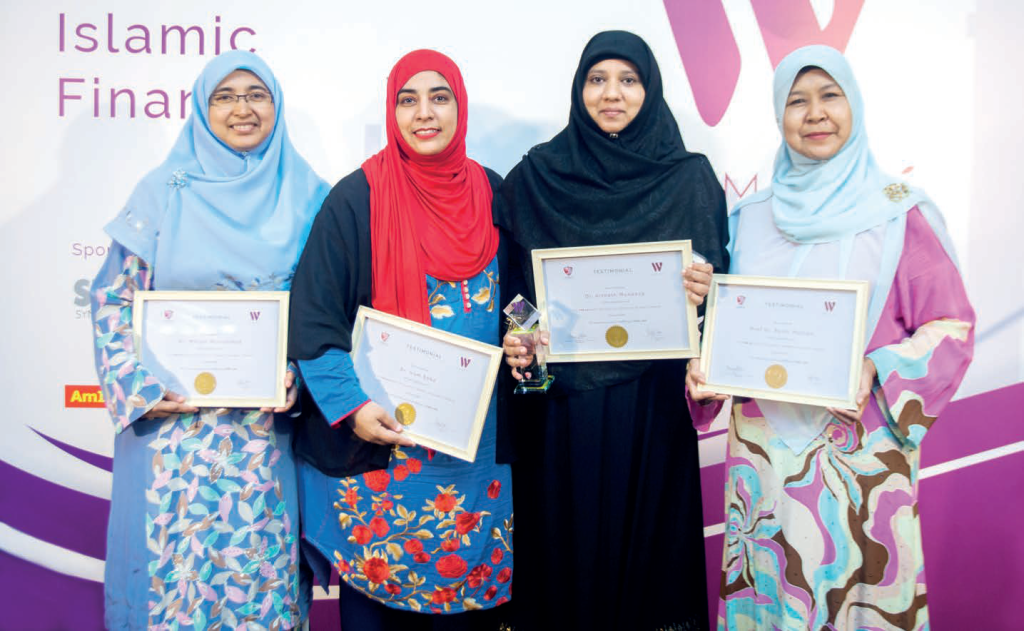
POWER GIRLS: Dr. Marjan Muhammad (WOMANi:13), Dr. Irum Saba (WOMANi: 33), Dr. Ayesha Muneeza (WOMANi: 14) and Professor Rusni Hassan (WOMANi: 22) are four power ladies in Islamic finance. They share one thing: all of them are specialists of jurisprudence of Islamic financial transactions with a focus on modern applications of fiqh al-muamalat al-maliya.
IBF has actually provided a number of opportunities for women, from Shari’a advisory positions to board level engagements. With the likes of Professor Engku Rabia Wadiah Ali, the first female Shari’a scholar advising an Islamic financial institution, Professor Rusni Hassan, Dr. Shamsiah Mohamad, Dr. Irwani Abdullah and Dr. Marjan Muhammad, one could only see that the future of Shari’a advisory was in safe hands. The likes of Raja Teh Maimunah (Number 2 on the WOMANi100 List), Sharizad Jumaat (CEO of RHB International Islamic Management), Sheila Halim (CEO of Amanah Mutual Berhad) and Farida Tahir (CEO of Grassroot Microfinance Bank) are future of IBF.
And the future was born on April 4, 2018 – WOMANi had arrived.
Congratulations to everyone!
For further information on WOMANi Awards, methodology and selection criteria, please consult pages 12-45 of ISFIRE February 2018 issue, which contains a detailed WOMANi Report.
